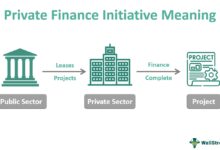Hedge Fund CRM Solutions: 7 Powerful Tools to Transform Your Firm
In today’s hyper-competitive hedge fund landscape, staying ahead means more than just smart investing—it’s about smarter relationships. Enter hedge fund CRM solutions: the game-changing platforms helping elite firms streamline investor relations, boost operational efficiency, and scale with precision. Let’s dive into how the right CRM can revolutionize your strategy.
Understanding Hedge Fund CRM Solutions

At its core, a Customer Relationship Management (CRM) system is designed to manage interactions with clients and prospects. But in the world of hedge funds, CRM takes on a far more sophisticated role. Unlike traditional CRM systems used in retail or B2C sectors, hedge fund CRM solutions are tailored to the unique demands of institutional investors, high-net-worth individuals (HNWIs), and complex compliance frameworks.
What Makes Hedge Fund CRM Different?
Standard CRM platforms like Salesforce or HubSpot are built for volume—tracking thousands of leads and automating mass outreach. Hedge fund CRM solutions, however, prioritize depth over breadth. They are engineered for high-touch, low-volume client relationships where every interaction matters.
- Focus on investor lifecycle management rather than sales funnel progression
- Integration with alternative data sources and portfolio analytics
- Advanced security and compliance features for regulated environments
These platforms don’t just store contact details—they map investor sentiment, track capital commitment timelines, and integrate with back-office systems to provide a 360-degree view of each relationship.
Core Functions of a Hedge Fund CRM
A robust hedge fund CRM solution goes beyond contact management. It acts as a central nervous system for investor relations, fundraising, and internal coordination. Key functions include:
Investor Profiling: Detailed records of investor preferences, allocation strategies, and communication history.Fundraising Pipeline Tracking: Visual dashboards showing where each prospect stands in the capital-raising process.Document Management: Secure storage and version control for PPMs, DDQs, and investor presentations..
Compliance Logging: Audit trails for all investor communications to meet SEC and MiFID II requirements.”A CRM isn’t just a database—it’s the institutional memory of your firm’s investor relationships.” — Former COO, Global Macro Fund
Why Hedge Funds Need Specialized CRM Solutions
Many hedge funds start with spreadsheets or generic CRMs, but as assets under management (AUM) grow, these tools quickly become bottlenecks.The need for specialized hedge fund CRM solutions arises from three critical pain points: scalability, compliance, and investor expectations..
Scaling Investor Relations Without Losing Personalization
As a fund grows from $100M to $1B+ in AUM, the number of investor touchpoints increases exponentially. Managing these manually leads to missed opportunities and inconsistent messaging. Hedge fund CRM solutions automate routine tasks—like follow-up emails or meeting summaries—while preserving the personalization that institutional investors expect.
For example, a CRM can trigger a personalized update when a fund hits a new performance milestone, automatically sending a tailored message to investors who have shown interest in that strategy. This level of automation frees up IR teams to focus on high-value conversations.
Meeting Regulatory and Compliance Demands
Hedge funds operate in one of the most heavily regulated sectors of finance. Every communication with investors must be documented, and data privacy is paramount. Generic CRMs often lack the audit trails, role-based access controls, and encryption standards required in this space.
Specialized hedge fund CRM solutions like Ventrify or FundBoard are built with compliance at their core. They offer features such as:
- Immutable activity logs for SEC examinations
- GDPR and CCPA-ready data handling protocols
- Integration with e-signature platforms like DocuSign for compliant onboarding
Raising Capital in a Competitive Market
The average hedge fund now takes 18–24 months to raise its first $100M. In this environment, efficiency is everything. Hedge fund CRM solutions provide real-time insights into fundraising momentum, helping managers identify which prospects are most likely to commit and when.
By analyzing engagement metrics—email open rates, document downloads, meeting frequency—CRMs can score leads and prioritize outreach. This data-driven approach reduces guesswork and accelerates capital formation.
Top 7 Hedge Fund CRM Solutions in 2024
The market for hedge fund CRM solutions has exploded in recent years, with platforms offering everything from basic contact management to AI-powered investor intelligence. Below are seven of the most powerful tools reshaping how hedge funds manage relationships.
1. Ventrify – The All-in-One Fundraising Platform
Ventrify has emerged as a leader in hedge fund CRM solutions by combining CRM functionality with fundraising analytics and investor onboarding. Its strength lies in its seamless integration with alternative data providers and compliance tools.
- AI-driven investor matching based on strategy fit and historical allocations
- Automated DDQ and KYC workflows
- Real-time fundraising dashboards with pipeline forecasting
Ventrify is particularly popular among emerging managers who need to punch above their weight in investor outreach. Learn more at ventrify.com.
2. FundBoard – Built for Institutional IR Teams
FundBoard is designed for mid-to-large hedge funds with dedicated investor relations teams. It excels in managing complex investor hierarchies and multi-tiered communication strategies.
- Customizable investor portals with performance reporting
- Integration with Bloomberg and Morningstar for real-time data sync
- Advanced reporting on investor engagement and sentiment
FundBoard’s strength is its configurability—firms can tailor workflows to match their specific IR processes. More at fundboard.com.
3. Salesforce Financial Services Cloud – Enterprise-Grade Power
For large hedge funds already embedded in the Salesforce ecosystem, Financial Services Cloud offers a robust foundation. While not purpose-built for hedge funds, its flexibility allows for deep customization.
- 360-degree client view with relationship mapping
- AI-powered insights via Einstein Analytics
- Strong integration with ERP and portfolio management systems
The downside? High implementation cost and complexity. It’s best suited for funds with $5B+ AUM and in-house tech teams. Explore at salesforce.com/financial-services.
4. Affinity – Relationship Intelligence Engine
Affinity stands out by using machine learning to map relationships across networks. It’s ideal for hedge funds that rely on referrals and warm introductions.
- Automated relationship scoring based on email and calendar data
- Network graph visualization to identify key connectors
- Integration with Gmail, Outlook, and LinkedIn
Affinity helps funds answer the critical question: “Who can introduce us to our next anchor investor?” Visit affinity.co for details.
5. Preqin Pro – Data-Driven CRM for LP Targeting
Preqin is best known for its alternative assets database, but Preqin Pro offers CRM-like features tailored to hedge fund capital raising. It’s a hybrid between a data platform and a CRM.
- Access to 70,000+ institutional investor profiles
- LP investment preferences and mandate tracking
- Activity logging and follow-up reminders
While not a full CRM, Preqin Pro is invaluable for sourcing and qualifying leads. See preqin.com for more.
6. DealCloud – M&A and Private Markets Focus
Originally built for private equity, DealCloud has gained traction among hedge funds with activist or credit strategies. Its CRM is deeply integrated with deal sourcing and pipeline management.
- Deal flow tracking with custom scoring models
- Event-based alerts for M&A or restructuring activity
- Mobile app for on-the-go relationship updates
DealCloud is ideal for hedge funds that operate at the intersection of public and private markets. Learn more at dealcloud.com.
7. CapLinked – Secure Document-Centric CRM
CapLinked focuses on the document lifecycle, making it a strong choice for funds in the due diligence-heavy stages of fundraising. It blends CRM features with virtual data room functionality.
- Watermarked, permission-based document sharing
- Investor activity tracking (who viewed what and when)
- Integrated e-signatures and compliance workflows
For funds managing complex onboarding processes, CapLinked reduces friction and enhances security. Visit caplinked.com.
Key Features to Look for in Hedge Fund CRM Solutions
Not all CRM platforms are created equal. When evaluating hedge fund CRM solutions, focus on features that align with your firm’s operational model, investor base, and growth stage.
Investor Lifecycle Management
The best hedge fund CRM solutions map the entire investor journey—from initial outreach to capital commitment and ongoing reporting. Look for platforms that support:
- Customizable stages in the fundraising pipeline
- Automated workflows for follow-ups and document requests
- Integration with email and calendar systems to log interactions
This ensures no prospect falls through the cracks and enables consistent messaging across the IR team.
Data Security and Compliance
Given the sensitivity of investor data, security is non-negotiable. Key features include:
- End-to-end encryption (E2EE) for data at rest and in transit
- Role-based access controls (RBAC) to limit data visibility
- Regular third-party audits (SOC 2, ISO 27001)
- GDPR, CCPA, and MiFID II compliance tools
Ask vendors for their security whitepapers and penetration test results before onboarding.
Integration Capabilities
A CRM should connect seamlessly with your existing tech stack. Essential integrations include:
- Portfolio management systems (e.g., Advent Geneva, Charles River)
- Email and calendar platforms (Gmail, Outlook, Microsoft 365)
- Document management and e-signature tools (DocuSign, Dropbox)
- Alternative data providers (Bloomberg, Refinitiv)
API-first platforms like Ventrify and Affinity offer the most flexibility for custom integrations.
How Hedge Fund CRM Solutions Improve Fundraising Efficiency
Fundraising is the lifeblood of any hedge fund, yet it remains one of the most inefficient processes in finance. Hedge fund CRM solutions transform this by introducing data-driven discipline to what has traditionally been a relationship-heavy, intuition-based process.
Automating Routine Tasks
CRMs eliminate time-consuming manual work. For example:
- Automated email sequences for post-meeting follow-ups
- Dynamic document generation for DDQs and pitchbooks
- Calendar syncing to avoid scheduling conflicts
One mid-sized hedge fund reported saving 15 hours per week in IR team workload after implementing a CRM—time that was redirected toward strategic investor calls.
Enhancing Investor Targeting with Data
Modern hedge fund CRM solutions leverage data to improve targeting accuracy. By analyzing historical LP behavior, asset class preferences, and geographic focus, CRMs can prioritize prospects most likely to invest.
For instance, a fund focused on ESG strategies can use its CRM to filter investors with a track record of allocating to sustainable funds. This reduces cold outreach and increases conversion rates.
Providing Real-Time Fundraising Analytics
CRMs offer dashboards that show fundraising progress in real time. Metrics include:
- Pipeline value by stage (prospect, meeting scheduled, DD in progress, committed)
- Conversion rates between stages
- Forecasted close dates based on historical patterns
These insights allow fund managers to make informed decisions—like whether to extend a fund’s close date or reallocate IR resources.
Implementing a Hedge Fund CRM: Best Practices
Choosing the right CRM is only half the battle. Successful implementation requires careful planning, stakeholder buy-in, and ongoing optimization.
Start with Clear Objectives
Define what success looks like. Is it reducing fundraising time by 30%? Improving investor response rates? Ensuring 100% compliance logging? Clear goals guide platform selection and adoption.
Ensure Team Adoption
Even the best CRM fails if the team doesn’t use it. Strategies for adoption include:
- Involve IR and compliance teams in the selection process
- Provide hands-on training and ongoing support
- Set usage expectations and track engagement
Make the CRM the single source of truth for all investor interactions.
Integrate with Existing Workflows
Avoid disrupting established processes. Instead, configure the CRM to mirror current workflows, then gradually introduce automation and advanced features. This reduces resistance and ensures a smoother transition.
Future Trends in Hedge Fund CRM Solutions
The CRM landscape is evolving rapidly, driven by AI, alternative data, and changing investor expectations. Hedge fund CRM solutions are poised to become even more intelligent and proactive.
AI-Powered Investor Insights
Future CRMs will use natural language processing (NLP) to analyze investor emails, call transcripts, and even social media activity to gauge sentiment. For example, an AI could flag a subtle shift in an LP’s tone that suggests waning interest—allowing the IR team to intervene early.
Blockchain for Investor Onboarding
Blockchain-based identity verification could streamline KYC/AML processes, reducing onboarding time from weeks to hours. Some hedge fund CRM solutions are already experimenting with decentralized identity protocols.
Hyper-Personalization at Scale
Next-gen CRMs will deliver personalized content—like performance reports or market commentary—based on an investor’s strategy, risk tolerance, and communication preferences. This level of customization will deepen relationships without increasing workload.
What are hedge fund CRM solutions?
Hedge fund CRM solutions are specialized software platforms designed to manage investor relationships, streamline fundraising, and ensure compliance. Unlike generic CRMs, they are built for the high-touch, regulated environment of alternative investments.
Why can’t hedge funds use regular CRM software?
Standard CRMs lack the compliance features, security protocols, and investor-specific workflows needed in hedge funds. They’re optimized for volume, not the depth and sensitivity of institutional investor relationships.
How do hedge fund CRM solutions help with fundraising?
They automate follow-ups, track investor engagement, prioritize leads based on data, and provide real-time pipeline analytics—reducing fundraising time and increasing capital close rates.
Are hedge fund CRM solutions expensive?
Costs vary widely. Entry-level platforms like Ventrify start at a few thousand dollars per year, while enterprise solutions like Salesforce can cost over $100,000 annually. The ROI often justifies the investment through faster fundraising and reduced operational risk.
Can CRM systems integrate with portfolio management tools?
Yes, the best hedge fund CRM solutions offer API integrations with portfolio management systems, enabling seamless data flow between investor relations and investment operations.
Choosing the right hedge fund CRM solution is no longer a luxury—it’s a strategic imperative. In an industry where relationships drive capital, having a system that enhances, organizes, and secures those connections is essential. From automating routine tasks to delivering AI-driven insights, modern CRMs empower hedge funds to raise capital faster, comply more easily, and build stronger investor relationships. Whether you’re an emerging manager or a seasoned firm, investing in the right CRM can be the difference between stagnation and scalable success.
Further Reading:


